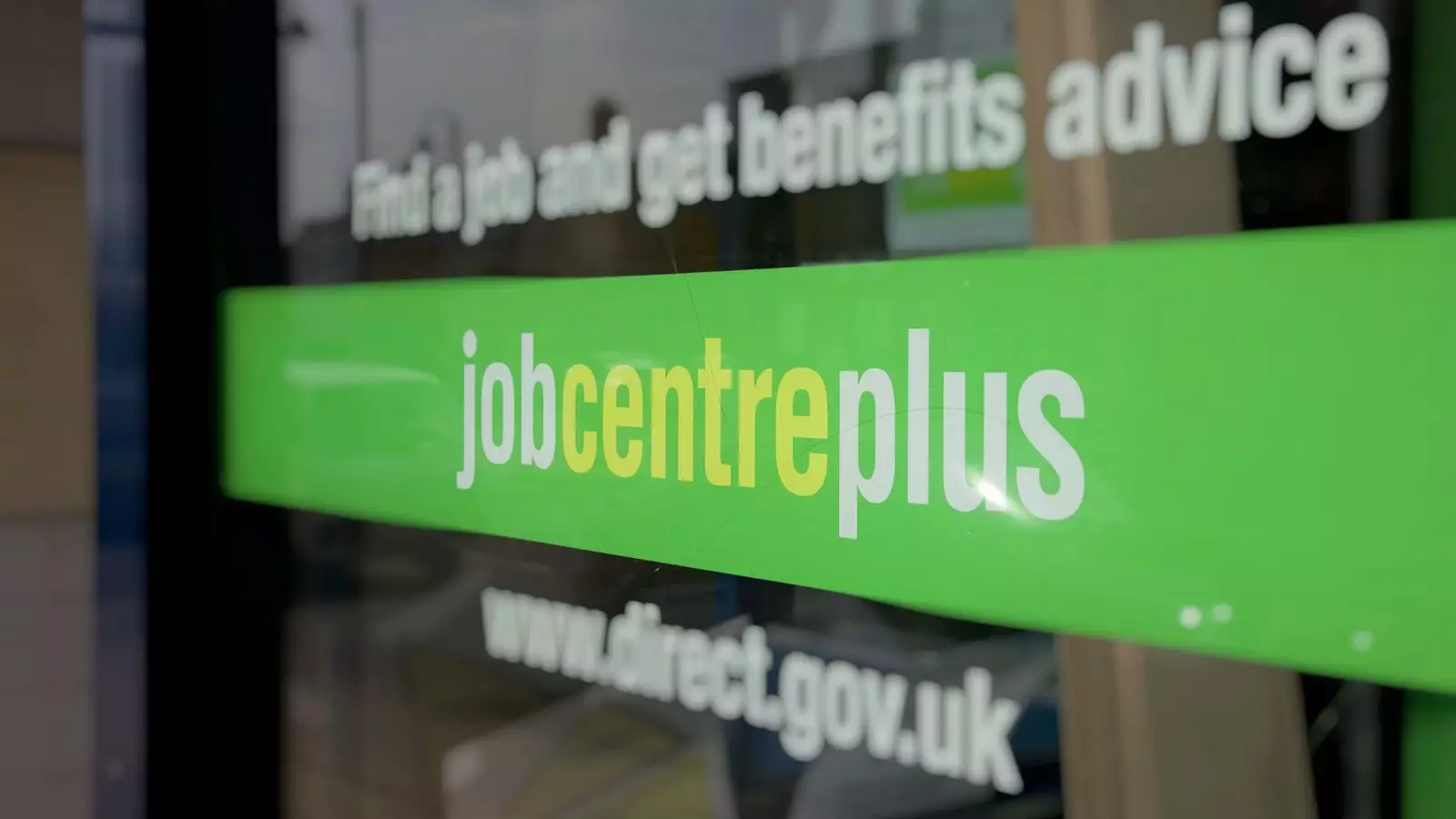The recent spike in the UK’s unemployment rate to 4.6% has sent tremors through the economic landscape, exposing the fragility of job security as the nation grapples with rising costs and governmental policy adjustments. With this rate representing the highest unemployment levels since July 2021, the repercussions are glaring. Over 1.6 million individuals are now counted among the unemployed, highlighting an unsettling reality for a country attempting to rebound from the economic downturn exacerbated by the pandemic. The data released by the Office for National Statistics (ONS) is not merely numbers; it is a stark reminder of the lives affected, the dreams deferred, and the uncertainty that looms over many households.
The unsettling truth echoed in the latest statistics is that businesses are beginning to retract their workforce, a trend encapsulated in the noteworthy decline of 109,000 payrolled positions in May. This figure, which represents twice the drop observed in April, underscores a systematic contraction that has not been seen in five years. The economic optimists may have rallied around a narrative of recovery; however, the data suggests that the burdens of additional employer national insurance contributions and increases to the national living wage may ultimately be stifling growth rather than fueling it. Economic theories aside, it is critical to recognize that real people are behind these statistics—families thrown into turmoil through no fault of their own as corporate giants grapple with increasing operational expenses.
The Cost of Tax Hikes: A Necessary Evil?
Chancellor Rachel Reeves has defended the budgetary decisions that have led to these tumultuous happenings, labeling the taxes on businesses—purportedly a one-off “necessary evil”—as essential to remedying a £22 billion black hole inherited from prior governance. However, the reality shows that these measures, meant to stabilize public finances, may be colliding with the everyday lives of citizens in a much more severe way than anticipated. The narrative that these tax hikes would engender sustainable economic growth appears increasingly hollow against the backdrop of actual employment drops and wage stagnation.
Critically, it begs the question: at what point do the potential benefits of such measures justify the immediate pain felt by both employers and employees? Rather than instilling confidence, the government’s response feels more reactive than proactive, placing band-aids on a larger economic wound. Small and medium-sized enterprises, which are the backbone of the UK economy, are finding it increasingly difficult to navigate this precarious terrain. Without a supportive framework to cushion the blow of such financial burdens, many of these businesses could face existential threats.
The Disconnect in Government Rhetoric
Amidst these disheartening figures, Employment Minister Alison McGovern has touted the enhancements wrought by initiatives like “Get Britain Working,” claiming that 500,000 more individuals have entered employment since taking office. While it’s great to see a commitment to work and economic activity, one must critically assess the efficacy of such initiatives in the face of burgeoning unemployment and declining average weekly earnings. The rise to 5.2% in wage growth, now diminished from a once more promising 5.5%, is a far cry from being a silver lining amidst the dark clouds of inflationary pressure that continues to haunt the populace.
Moreover, the supposed thriving of “record economic activity” contradicts the tangible experiences of many citizens who are wrestling with mounting financial pressures. It’s one thing to delve into the statistics and claim success; it’s an entirely different matter to align those numbers with the lived experiences of families struggling to make ends meet in this turbulent economy. As firms express hesitation in hiring new talent, it becomes glaringly apparent that the gap between governmental rhetoric and the real-world implications of their policies is widening, a dangerous disconnect that could have dire consequences.
The Bigger Picture: A Wake-Up Call
The recent statistics are not just sobering figures but an urgent clarion call for a reinvigorated approach to economic policy—one that genuinely recognizes the interconnectedness of business health and employee wellbeing. In a country that prides itself on progressive values, it’s crucial to advocate for policies that strike a balance between fiscal responsibility and the welfare of its citizens. The current trend presents an uncomfortable reality that may ultimately lead to political repercussions if left unaddressed, as increasing numbers of constituents become disillusioned with a system that seems to prioritize profits over people.
In the pursuit of economic stability and growth, it is paramount that legislators prioritize sustainable practices over quick fixes. For the welfare of the working class and the dynamism of businesses alike, it is time for a renewed commitment to a cooperative approach that fosters both economic resilience and job security.


Leave a Reply